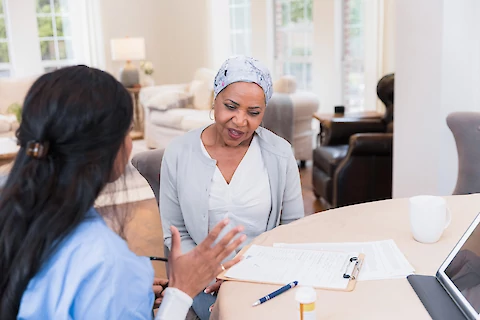
Breast cancer is an issue that affects millions of individuals worldwide. The risks and impacts can significantly increase with age, making understanding this medical condition critical, especially for our senior population. Let's shed light on the risk factors associated with breast cancer in seniors, its increasing prevalence with age, and the necessary steps to potentially mitigate these risks. Our objective is not to alarm but to empower you with knowledge. Remember that regular screenings, a healthy lifestyle, and personalized advice from your healthcare provider can go a long way. Read on to learn more about how you can stay proactive in your health journey.
Understanding Breast Cancer
Breast cancer is a disease that occurs when cells in the breast grow abnormally. Seniors' risk of developing breast cancer can significantly increase due to numerous factors, including age, family history, and lifestyle choices. It's estimated that about 1 in 8 women will be diagnosed with breast cancer, with a significant percentage being seniors. Regular breast cancer screenings, such as mammograms, are essential for early detection and improved treatment outcomes in senior women.
Risk Factors Associated with Breast Cancer in Seniors
Age is crucial in increasing the likelihood of breast cancer. The risk becomes higher as you grow older. Genetic factors also contribute, such as having a close relative with the disease, mainly if diagnosed young. Lifestyle factors, such as excessive alcohol consumption and obesity, can further escalate the risk. Additionally, hormonal factors, like experiencing menopause after age 55 or not having children, can exacerbate your risk.
Importance of Regular Screenings
The early detection of breast cancer can dramatically improve the success of treatment, which is why regular screenings are crucial. Mammograms, which are X-ray images of the breast, are the most common screening method. They can detect tumors that are too small or deep to be felt by hand. Other tests may include breast ultrasounds or MRIs. Seniors, particularly those with high risk, are often advised to have mammograms more frequently.
Prevention and Risk Mitigation
Living a healthy lifestyle is central to breast cancer prevention. Eating a balanced diet with plenty of fruits, vegetables, and lean protein can help maintain a healthy weight, which may reduce cancer risk. Regular exercise, such as walking, swimming, or yoga, is also recommended. It's also important to limit alcohol intake and avoid smoking, as these habits have been linked to increased breast cancer risk. Beyond lifestyle adjustments, regular check-ups and screenings remain invaluable in early detection and treatment.
Need Help Living an Independent Life?
Understanding breast cancer and its associated risks is a powerful tool for seniors. It equips you with the knowledge to make lifestyle choices that can directly impact your health and well-being. Remember to consult your healthcare provider for personalized advice on your health journey.
For those living in Apache Junction, San Tan Valley, and Superior, we at Senior Helpers Queen Creek are here to support you. We offer various services to help seniors maintain a healthy and independent lifestyle. Contact us today to learn more about how we can assist you.